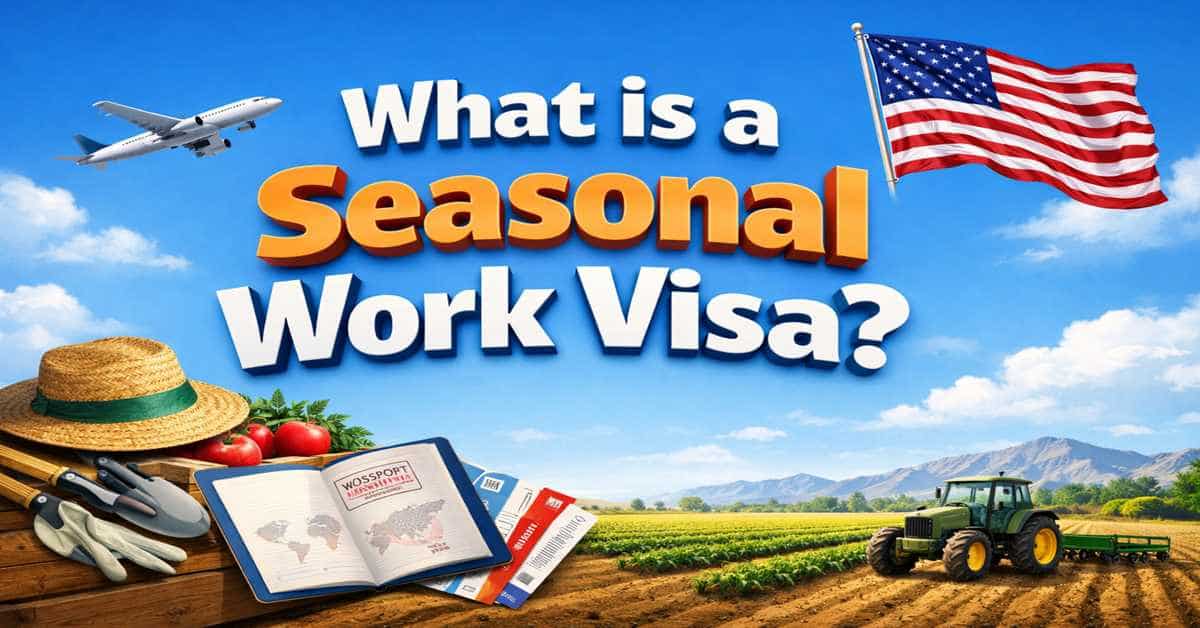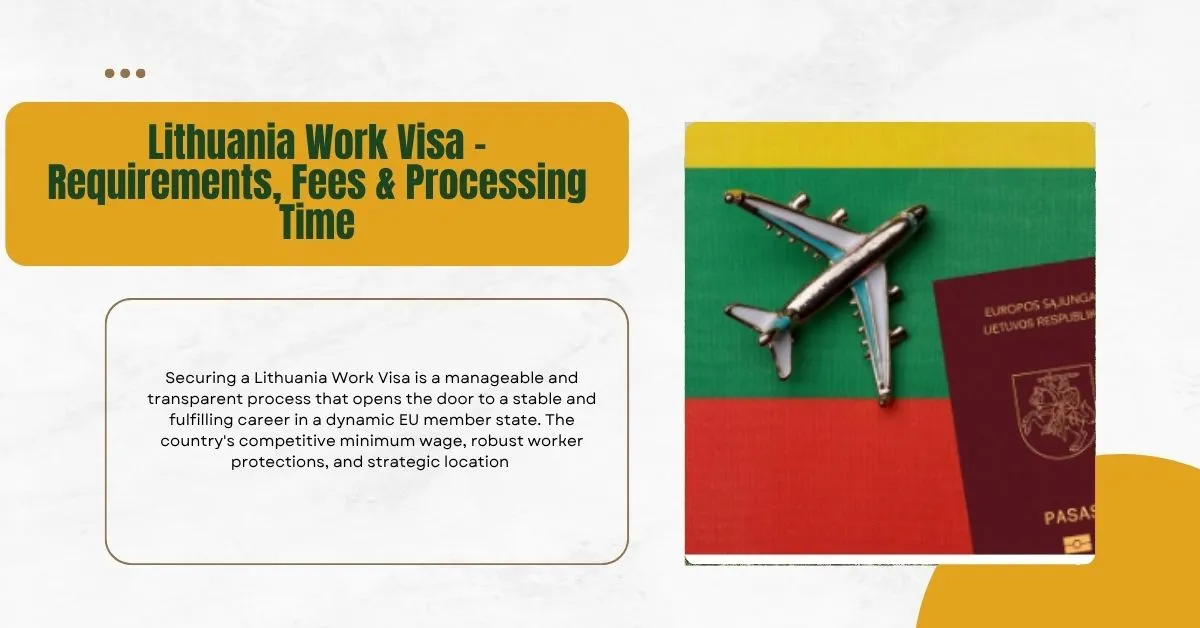What is a Seasonal Work Visa 2026

If you’ve ever wondered what is a seasonal work visa, you’re not alone. Many countries offer these visas to fill temporary labor gaps during busy periods like harvest seasons, tourist peaks, or holiday retail rushes. A seasonal work visa allows foreign workers to live and work in a country for a limited time, often tied to specific industries and dates.
This guide explains what a seasonal work visa is, how it works, and how to apply. Let’s dive in!
What is a Seasonal Work Visa?
A seasonal work visa is a temporary visa granted to foreign nationals who come to work in a country for a short period to perform work linked to a particular season or time of year.
Key characteristics include:
- Temporary Duration: Typically ranges from a few weeks up to nine months, depending on the country.
- Industry-Specific: Often limited to sectors like agriculture, hospitality, tourism, or construction.
- No Path to Permanent Residency: Most seasonal visas don’t lead directly to permanent residency or citizenship.
The goal of seasonal work visas is to help employers cover labor shortages during peak periods without making permanent hires.
Check Also: Luxembourg Seasonal Work Visa
How Does a Seasonal Work Visa Work?
The process for obtaining a seasonal work visa varies by country but often includes:
- Job Offer: Applicants usually need a valid job offer from an employer approved by immigration authorities.
- Visa Application: Candidates submit documentation, including contracts, proof of accommodation, and financial means.
- Duration Limitations: Workers are allowed to stay only for the period stated in their visa, sometimes with the possibility of renewal.
- Work Restrictions: Visa holders may be restricted to specific employers or industries.
Countries like the United States, Australia, New Zealand, Canada, and many European nations operate seasonal worker programs.
Benefits:
For both workers and employers, seasonal work visas bring advantages:
For Workers:
- Opportunity to earn income abroad
- Cultural exchange and travel
- Gaining new work experience
For Employers:
- Filling labor shortages during peak seasons
- Maintaining productivity and service levels
- Access to a flexible workforce
Seasonal Work Visa Examples Around the World:
Here’s a quick look at how seasonal work visas operate in several countries:
United States
- Program: H-2A (Agricultural) and H-2B (Non-Agricultural) Visas
- Duration: Up to 10 months
- Industries: Agriculture, hospitality, landscaping, seafood processing
Australia
- Program: Seasonal Worker Program
- Duration: Up to 9 months
- Industries: Agriculture, horticulture, tourism, hospitality
New Zealand
- Program: Recognised Seasonal Employer (RSE) Scheme
- Duration: Up to 7 months
- Industries: Horticulture and viticulture
Canada
- Program: Seasonal Agricultural Worker Program (SAWP)
- Duration: Up to 8 months
- Industries: Agriculture, greenhouse, nursery work
European Union
- Directive: EU Seasonal Workers Directive
- Duration: Up to 9 months (varies by country)
- Industries: Agriculture, tourism, hospitality
How to Apply for a Seasonal Work Visa?
Although requirements vary, here’s a general step-by-step guide:
- Find a Job Offer: Connect with employers participating in seasonal worker programs.
- Prepare Documents: Gather a valid passport, employment contract, proof of accommodation, and financial evidence.
- Submit Application: Apply either online or at a consulate/embassy.
- Attend Interview (if required): Some countries require interviews or biometrics.
- Wait for Decision: Processing times differ but can take from weeks to months.
Always check official government websites for the latest eligibility rules and application details.
Conclusion:
So, what is a seasonal work visa? In short, it’s a temporary permit allowing foreign nationals to fill short-term labor needs tied to specific seasons or industries. Whether you’re looking to earn extra income abroad or an employer needing seasonal staff, understanding the rules and processes for seasonal work visas is crucial.
Always check the latest information from official immigration authorities before applying. With proper planning, seasonal work can be a rewarding experience for both workers and employers!
Frequently Asked Questions:
What industries typically hire seasonal workers?
Industries like agriculture, hospitality, tourism, construction, and manufacturing often hire seasonal workers.
Does a seasonal work visa lead to permanent residency?
Generally, no. Seasonal work visas are temporary and don’t directly lead to permanent residency or citizenship.
Can I extend a seasonal work visa?
Some countries allow extensions, while others require workers to leave and reapply the following season.



